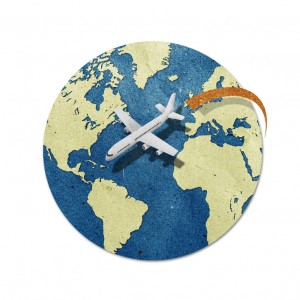In past months we’ve talked about giving MK’s an appreciation for their host country (mission field) and their home country (where their parents come from.) Here are some other things you can do to give them a positive MK experience.
1. Emphasize the positive parts of missionary life.
Face it. Sometimes missionaries feel like a round peg in a square hole. In many mission fields the missionary family may look very different from the nationals and have a very different lifestyle. Differences in language and culture may make it difficult to build really close relationships with nationals. Then they return to their home country and find they don’t fit in real well there either. They have changed. They see things differently than they did before.
But missionary life also has advantages. You may get to travel far more than the average person from your home country. You may get to eat exotic dishes and taste weird fruit that few people in your home country even know exist. How can you capture and emphasize the advantages of your life?
When my girls were little I began to realize that, over their growing up years, they would be able to visit some cool places. I made each of my daughters a “Neat Places I Have Been” book. I used about a page for each year, and put a photo of each major places they went. Furlough years took several pages. This was one book that they could take to college or show to their spouses in years to come. It emphasized travel, one of the advantages of being an MK.
You could do the same thing with a shadow box or a collection of some kind. What physical object can you put in their hands that makes them say, “Wow! I’m blessed to be an MK.”
2. When possible, give your kids an enjoyable part in your ministry.
We moved to New Zealand during our daughters’ high school years. Here they were able to have a vital part in our ministry. Lisa was only here for six months, but she immediately stepped into choir and some teaching opportunities. Lori lived here two years. She took over our puppet ministry and kept it going while she was here. Our daughters naturally attracted teens to our ministry. I was so pleased that they could have the chance to really take part in ministry and enjoy it before they left home.
Even small children can help pass out hymnals or greet people and make other kids feel welcome. Kids who play an enjoyable part in their parents’ ministry are less likely to resent being MK’s when they become adults.
Your particular field may present challenges for engaging your children and building memorable times as a family. Pray about it. Work at it. Somewhere in the context of your ministry there will be some fun things that you can do as a family or that your child can participate in individually that will give him great childhood memories and make him glad that he’s an MK.
What activities or ideas have you found in your place of ministry to emphasize the positive aspects of being an MK?
3. Encourage your kids to develop unique skills that are available to them because they are MK’s.
Arrange for ways to learn the language of the host country even if they move overseas at an older age. Give them opportunities to use the language and point out what a valuable skill that is.
Help them develop ministries on the field that translate into ministry skills in their home country. Use them to help teach children’s church or VBS when they are on furlough.
Encourage them to write about their life as an MK and direct them to writing contests or ways to use their writing.
Teach them to use the art of friendship as a ministry wherever you go.
This doesn’t mean that you should push your MK’s into uncomfortable situations, but look for ways to encourage your kids to develop their own interests in ways that will make them glad for the advantages they have for growing up in a missionary home.
What unique ways have you found to give your MK a positive missionary experience?




